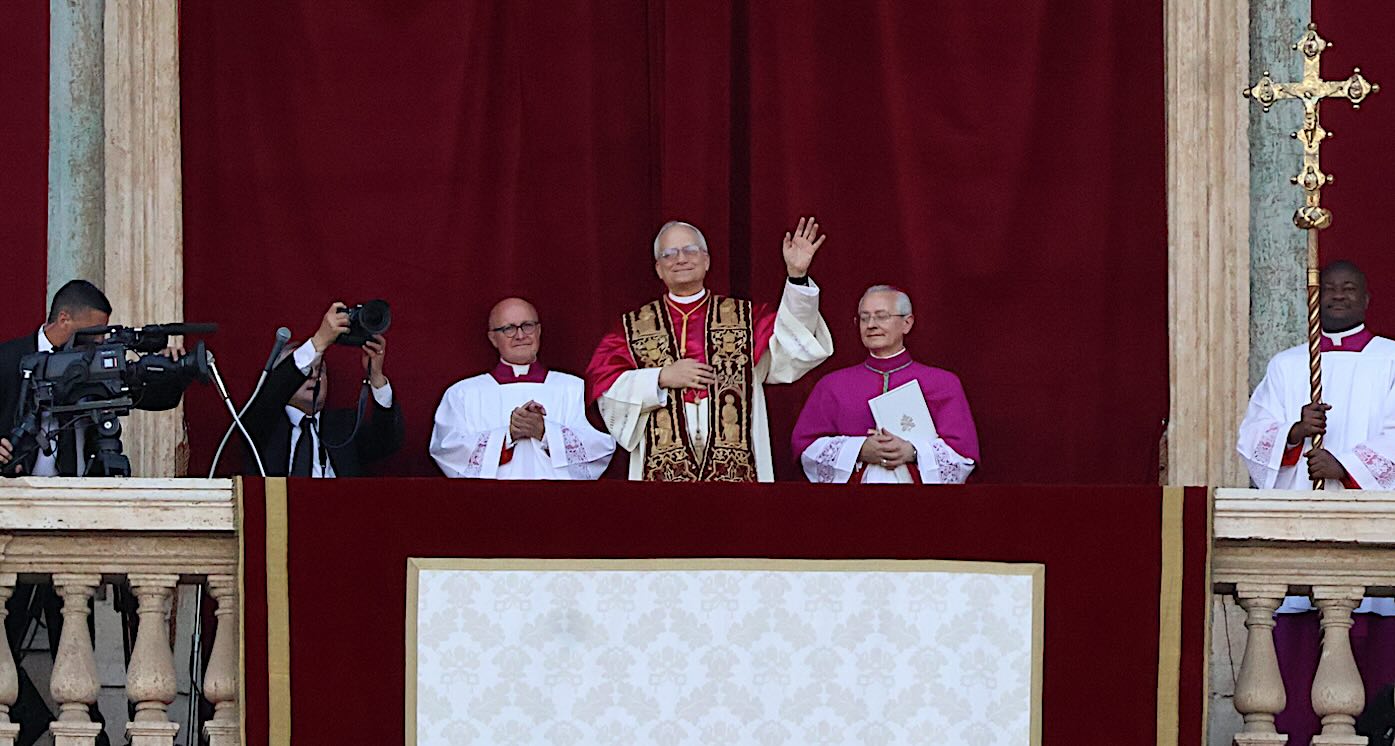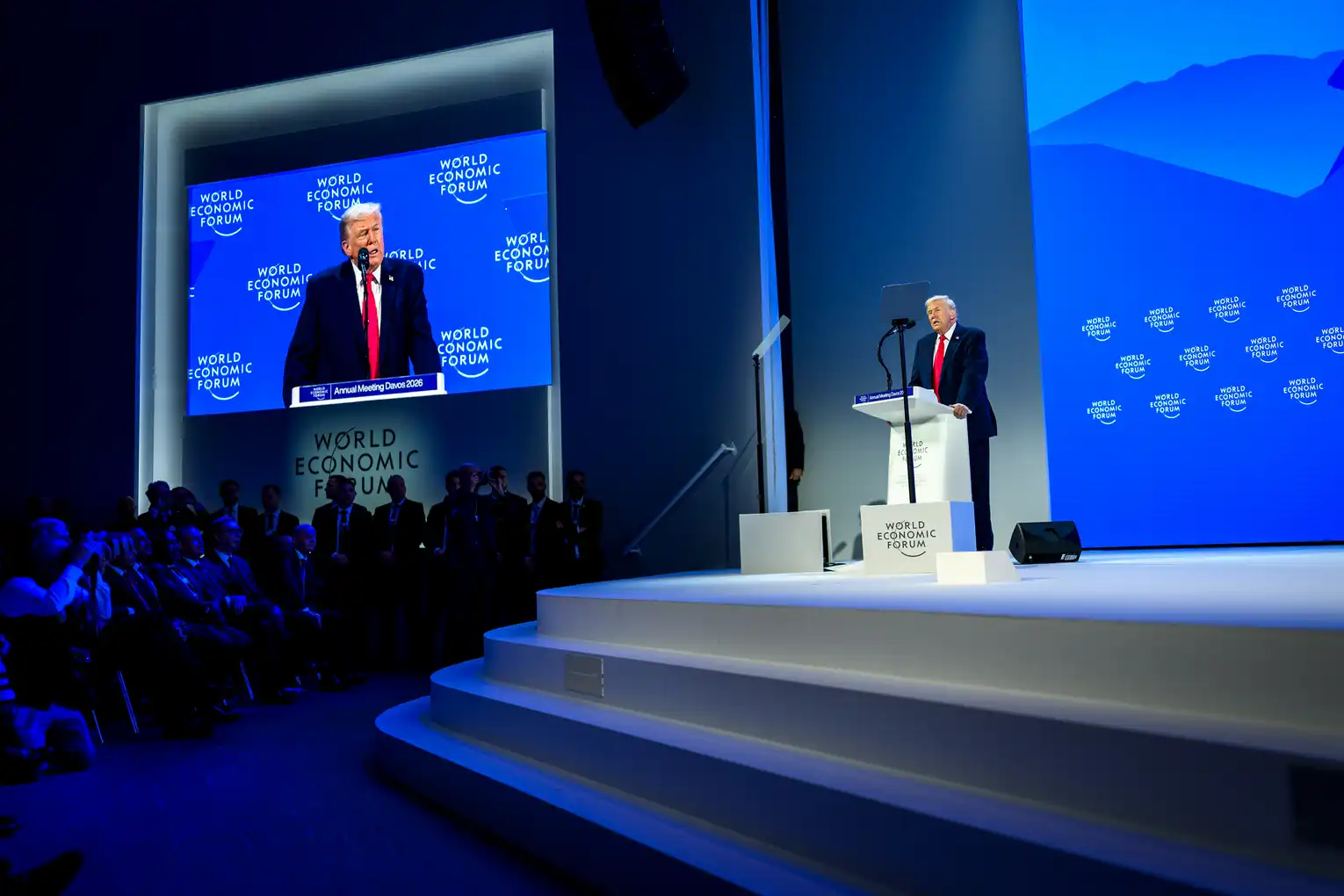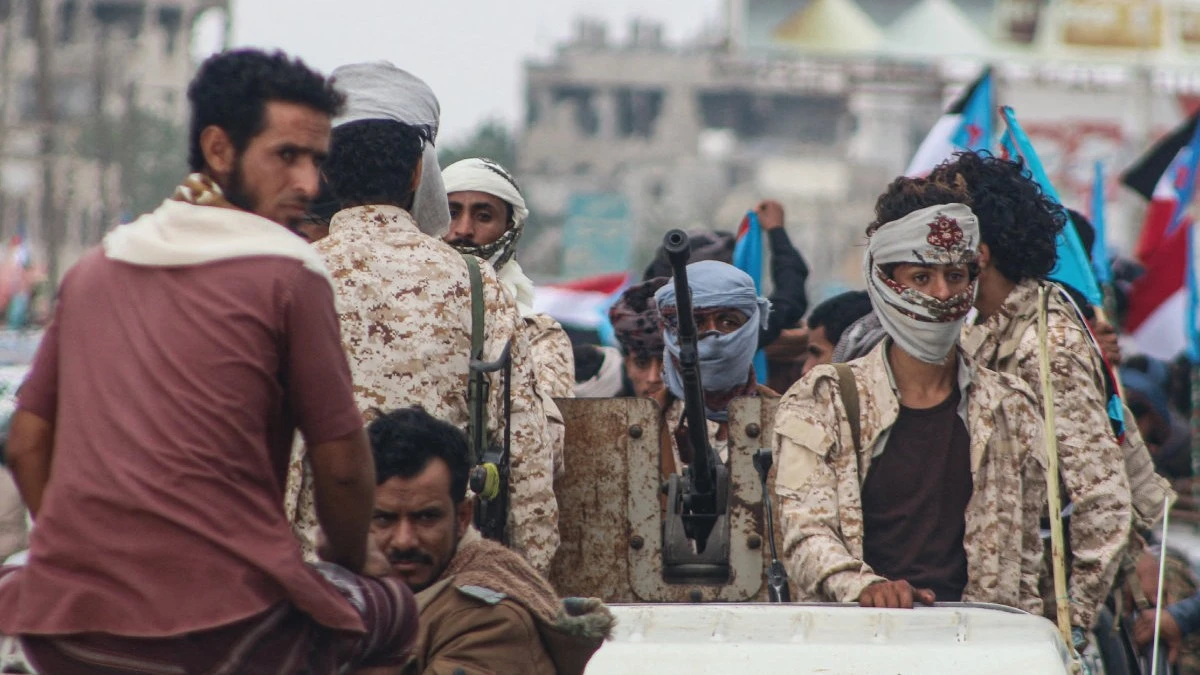Days after the shock announcement from the Vatican that the first American pope in history had been elected, Chicago’s Robert Prevost stood on the balcony over the central loggia of St. Peter’s Basilica for the Regina Caeli prayer, and called for an “authentic, just, and lasting peace” in the world.
“In today’s dramatic scenario of a third world war being fought piecemeal, as Pope Francis said, I too turn to the world’s leaders with an ever timely appeal: never again war!” said Pope Leo XIV, who later mentioned Ukraine, and Gaza specifically. “I am deeply pained by what is happening. Let the fighting cease immediately, let humanitarian aid be provided to the exhausted civilian population, and may all hostages be released”.
The words were powerful and to be expected from the vicar of the Prince of Peace, but there’s something ever so slightly different from when Pope Francis said relatively similar things: the words are coming from an American—one of the belligerents in virtually all corners of the “piecemeal” world war that the Pope describes.
The only time peace is mentioned in today’s political lexicon is when it’s proceeded with the words “through strength”. A mantra commonly repeated the officials during the Trump Administration, the outcome has proved quite similar to the Biden Administration’s foreign policy foundation of the “rules-based international order,” or the previous Trump Administration’s concept of an “America first” foreign policy.
All three have resulted in a military budget that consistently increases, indirect or direct participation in most global conflicts of note, unauthorized and unannounced bombing raids anywhere in the world at any time, massive military buildups in East Asia, and a diplomatic corps that is often more militaristic than the Pentagon.
“The United States was often deemed too powerful — militarily, diplomatically, and even culturally — for one of its own to control one of the world’s most influential seats of moral authority,” wrote Stephen Collinson in an analysis of Leo XIV’s election at CNN. “Could the cardinals have been making an implicit argument that there is another American path?”
“It would be superficial to argue Leo’s election is a rebuke of Trumpism. Yet it’s also impossible to ignore that the Roman Catholic Church mastered the techniques of high politics centuries before the United States won its independence”.
The Prince of Peace
At least purported to be a Christian nation, the quarter of the United States’ population that identify as Catholic will doubtless be elated at the prospect of 10-20 years of an American papacy, or at least the majority will. But will they be elated enough to heed his messaging, particularly as it comes to war?
American Christians have long been a bastian of support for right-wing warmakers in Washington since the Cold War, perhaps because they’ve never had a voice louder than a Senator or President to claim that they should strive for peace on Earth and goodwill towards man.
Now in its 19th month, the genocide in Gaza, which the United States has aided, abetted, and defended, was a frequent topic of criticism by Leo’s predecessor.
At Angelus prayer in December 2023, Pope Francis condemned an attack on the compound of the Catholic parish in Gaza, “where there are no terrorists, but families, children, people who are sick and have disabilities, and nuns”.
“A mother, Mrs. Nahida Khalil Anton, and her daughter, Samar Kamal Anton, were killed, and others were wounded by the shooters while they were going to the bathroom,” said the Pope, according to Vatican News. “Some say, ‘This is terrorism. This is war.’ Yes, it is war. It is terrorism. That is why the Scripture affirms that ‘God stops wars… breaks the bow, splinters the spear’ (Psalm 46:10). Let us pray to the Lord for peace”.
What if that statement came from a pope born in the country that has been instrumental in arming the nation committing that war; the one producing the bows and the spears? Does it carry greater weight?
Following the attacks beyond the walls of Gaza on October 7th, Christians around the country were urged by megachurch pastors and other evangelicals to “pray for Israel”—the kneejerk response to violence committed on Israeli citizens born of a modern belief that the Jewish people must inhabit Jerusalem to facilitate the Second Coming, a fluke in the theological backbone of modern denominational Christianity popularized by Cyrus Schofield’s interpretation of the Gospel that happened to be used as the footnotes of the King James Bible printed by Oxford University Press in the United States in the early 20th century.
Harvard and Colombia University historian, radio host, and New York Times best-selling author Thomas Woods, himself a Catholic, denied that any Christian theologian of note has ever espoused this theology.
“This theological opinion would have been news to Augustine and St. Thomas, not to mention Martin Luther and the Protestant movement,” Woods wrote in 2023.
Given, Christians who believe in Schofield’s vision of the “rapture,” followed by a period of “tribulation,” typically belong to large, non-denominational churches with more or less a Baptist origin in the southern United States, many of whom will not be beholden to the words of a pope, and in fact pursue their faith specifically as a result from a separation with the Roman Catholic Church. These Christians are often the most militantly supportive of Israel even in the face of the Israeli Defense Forces repeated and often indiscriminate targeting of Christians in Gaza and Lebanon.
The non-aligned movement, the student anti-war protests in the 1960s, the “Vietnam Syndrome,” the 1971 release of the Pentagon Papers, the threat of nuclear extermination from proliferation, the opening up of China, the end of the Cold War, the mounting national debt, the election of the first Black president, the repeated losses and failures during the terror wars, the disastrous withdrawal from Afghanistan: none of these events in their time were able to check the gradual growth of the American warfare state. Will Pope Leo XIV’s papacy join the list, or will his prayers for peace of Earth and an end to wars witnessing American involvement—in part by his call for them—be heard? WaL
We Humbly Ask For Your Support—Follow the link here to see all the ways, monetary and non-monetary.
PICTURED ABOVE: Pope Leo XIV waves at the people gathered in St. Peter’s Square in first public appearance as pope. PC: Edgar Beltrán / The Pillar, CC BY-SA 4.0



